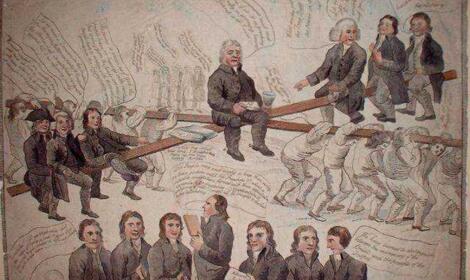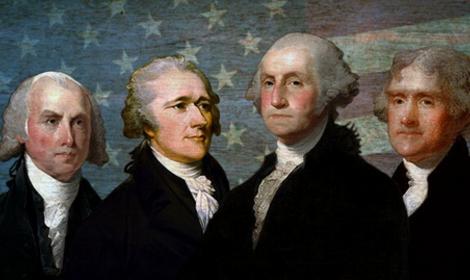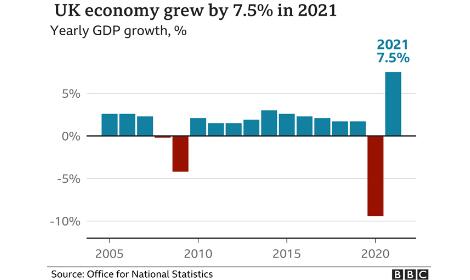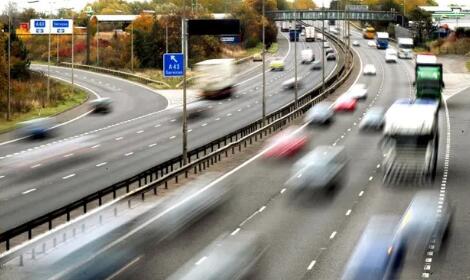英国的火车票为什么这么贵?
正文翻译
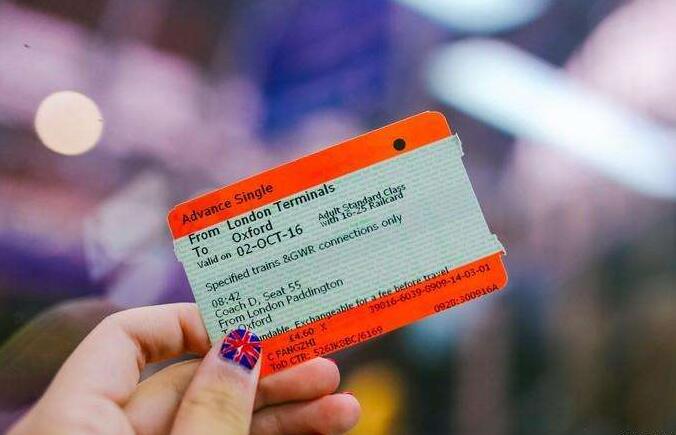
This annoys me a lot, it’s usually around half the price in petrol/parking to drive vs the train. I want to go from Reading to Nottingham with my partner without the emissions of driving yet it’s over half price / about £80 cheaper to drive than buying two return train tickets.
How can we change this???
这让我很恼火,通常,开车的油费、停车费只是火车票价格的一半左右。我想和我的搭档不开车从雷丁到诺丁汉,但开车比买两张往返火车票便宜一半以上,大约 80 英镑。我们该如何改变这点??

This annoys me a lot, it’s usually around half the price in petrol/parking to drive vs the train. I want to go from Reading to Nottingham with my partner without the emissions of driving yet it’s over half price / about £80 cheaper to drive than buying two return train tickets.
How can we change this???
这让我很恼火,通常,开车的油费、停车费只是火车票价格的一半左右。我想和我的搭档不开车从雷丁到诺丁汉,但开车比买两张往返火车票便宜一半以上,大约 80 英镑。我们该如何改变这点??
评论翻译
Oor-Wullie
The direct result of rail being privatised and prices shooting up, hence why we regularly hear how it’s cheaper to fly than get a train. This is obviously a ridiculous situation we’ve found ourselves in (how many of us really desperately wanted our rail network to be privately owned) where the majority of our main rail providers are not even owned by companies based in the UK. Compare our prices to other European countries (and, anecdotally, quality) who haven’t privatised and even use our rail network as an example of what they don’t want to see happen. Therefore what we can do about it is try to influence politicians to re-nationalise rail.
这是铁路被私有化,然后价格飙升的直接结果,这就是我们经常听到有人说坐飞机比坐火车便宜的原因。显然,我们发现自己处于一个荒谬的境地里,(我们中有多少人真的非常希望我们的铁路网络被私有呢),我们的大多数主要铁路拥有者甚至不是英国公司。我们的火车票价格(还有质量)和没有进行私有化的欧洲国家进行对比看看,他们甚至把我们的铁路网络作为反面例子。因此,我们能做的,就是尝试影响政客将铁路重新国有。
paulwasalreadytook
The airlines are not state owned either, so it’s not good comparison. However, unlike airlines the train companies have no direct competition
航空公司也不是国有的,所以这不是一个好的对比。不过,与航空公司不同,铁路公司没有直接的竞争。
I_Frunksteen-Blucher
Amother reason it's not a good comparison is that aeroplanes aren't trains and airports aren't stations.
这不是一个好对比的另一个原因是,飞机不是火车,机场不是车站。
Wh0Saiddit
Planes can also turn left and right and trains are stuck going forwards or backwards
飞机也可以左转和右转,火车也会在前进或后退时卡住
mbfos
Planes can also go up and down, where as trains can only stay on the ground.
飞机也可以上升或下降,而火车只能待在地面上。
piblhu
Planes normally have more wings than trains do. Fewer wheels though
飞机的翅膀通常比火车多,不过轮子更少
kwnofprocrastination
And sky doesn’t need maintaining like our very old tracks do.
而且天空不需要像我们老旧的铁轨一样需要维护。
PumpkinExpert2092
lots of airports (especially those used by low cost airlines) are propped up by government funding. Jet fuel is also tax exempt for some reason.
许多机场(尤其是低成本航空公司使用的机场)是由政府资助的。出于某种原因,飞机燃料也是免税的。
Milbso
Competition and privatisation ought to be lixed IMO. There is no sense in privatising something which can't reasonable support a competition based market, like trains. Personally I don't like privatisation at all but for trains it is just ridiculous.
在我看来,竞争和私有化应该联系起来。对于那些不进行市场竞争的东西比如火车,把它私有化是没有意义的。就我个人而言,我一点都不喜欢私有化,在火车这个问题上,它简直是荒谬的。
CastleMeadowJim
Same with houses.
房子也一样。
reuben_iv
They kind of are it's companies competing to run services for the government
有点像是各公司竞争来为政府提供服务。
happymellon
They are bidding to get a contract, which is not the same thing as competing.
Competing would imply that you have options so everyone tries to give the best possible service to gain your attention. Bidding on a contract means that everyone gets the cheapest to provide, low cost service possible but it does not mean good service.
That is not the way to get quality service, that's how you get terrible consultancy firms.
他们是在竞标以获得合同,这与竞争不同。
竞争意味着你有选择,所以每个人都试图提供最好的服务来吸引你的注意力。竞标合同意味着每个人都能得到最便宜的、低成本的服务,但这并不意味着优质的服务。
这不是获得优质服务的方式,而是获得糟糕咨询公司的方式。
Upholder93
They are bidding for a franchise. This gets the best price for the government, but means bid winners now need to recoup the cost of the franchise as quickly as possible. That means minimizing expenses and maximizing prices for consumers.
他们是在竞标获得特许经营权。这为政府获得了最好的价格,但这意味着投标获胜者需要尽快收回特许经营的成本,意味着最小化开支,而消费者要付出更高的价格。
proxitauri
Iv been working on the railways since March 1985 wen it was British Rail and the only reason it was bad compared to other state owned train companies is funding The usual average in Europe from 1945 onwards was 1 % of the country's GDP went on their national public transport networks This never happened here, at nationalising in 1948 it was left to look after itself financially but things only got worse because fright and people were increasingly going by road but from the late 50s the Public Service Grant was introduced to help BR to the tune of 2 or 3 million pounds per year In the 80s Thatcher wanted BR privatised as one big lump to stop the tax payer paying for the financial burden, in the 90s Major government it was broken up into 20 train companies that had rent infrastructure from Railtrack who owned tracks, signals, stations etc and trains from rolling stock leasing companies But as an incentive to run a franchise each company could claim upto £250 MILLION per year from the treasury Pandemic aside the railways are no better than 40 years ago
从1985年3月开始,我就一直在从事铁路工作,当时它还是英国铁路公司,与其他国有火车公司相比,它这么糟糕的唯一原因是资金不足。从1945年起,欧洲国家用于公众交通网络的通常平均水平是该国 GDP 的 1% ,但英国从来没有达到过。1948年国有化时,它在财务上只能勉强维持,但每况愈下,因为人们越来越多地通过公路交通。但从50年代后期开始,公共服务补助金被引入,每年200万或300万英镑,以帮助英国铁路公司。在80年代,撒切尔希望将英国铁路公司作为一个整体进行私有化,让纳税人不再为财政负担买单。在90年代,政府将其拆分为20家铁路公司,从拥有轨道、信号、车站等的铁路公司租赁基础设施,还有从铁路车辆租赁公司租赁火车。但为了激励特许经营,每个公司每年可以从国库索要高达2.5亿英镑。疫情期间且不说,铁路并不比40年前好。
LeichtStaff
Did the distribution into different parts of the transportation (one cares about trains, one about stations, one about railroads/signs, etc) cause the prices to go higher because everyone of these wanted to have a profit on their task?
是否因为分配到不同的部分,每个人都想在他们的部分中获得利润(有人关心火车,有人关心车站,有人关心铁路、信号灯等),所以导致了票价更高?
PazyP
The thing with the re-nationalise is I feel it's highly unlikely they will drop the prices, while they may not rise journeys aren't all of a sudden going to become much cheaper.
关于重新国有化,我觉得他们降低价格的可能性很小,虽然他们可能不会涨价,但旅行不会突然变便宜很多。
Oor-Wullie
Any evidence for this other than your ‘feeling’? Perhaps they won’t for a long time and the extra revenue will need to be used to catch up on upgrading infrastructure, but there is the opportunity for them to be cheaper in the longer term simply by not being run for profit
除了你的“感觉”之外,还有什么证据吗?也许它们在很长一段时间内不会变便宜,额外的收入需要用于升级基础设施,但从长远来看,它们有机会变得更便宜,因为它们不以盈利为目的。
YouLostTheGame
Because there's fuck all margin in rail currently (which is why the system is getting completely overhaulled), and the fundamental problem with nationalisation is that there's no incentives to make things better.
Since privatisation, passenger numbers have increased, passenger satisfaction has increased, and fares have actually grown at a slower pace than under British Rail
Why would nationalisation improve things? Just a feeling?
因为目前铁路行业的利润都非常糟糕(这就是要对铁路系统进行彻底改革的原因),而国有化的根本问题是没有动力让情况变好。
【新闻链接】自私有化以来,乘客数量增加,乘客满意度提高,票价的增长速度实际上比英国铁路公司慢。
为什么国有化会改善情况?只是感觉?
cillitbangers
It just feels like the kind of industry that fundamentally shouldn't be private.
Competition isn't really possible on the vast majority of journeys so the core principle of the free market doesn't work to improve the service and lower price.
Many lines can't really be profitable because of the number of passengers but I believe that these services should still run. People need trains even if their town can't support a profitable line. That makes it the perfect candidate for nationalisation to me. It's a public service that people need and given the green ambitions, the world needs.
I appreciate that these are somewhat wishy washy feeling based arguments but I think that the points are still valid here.
铁路是一个根本不应该私有化的行业。
在绝大多数旅行中,竞争是不可能的,所以自由市场的核心原则不适用于改善服务和降低价格。
由于乘客的数量问题,许多线路无法真正盈利,但我认为这些服务仍应继续经营。人们需要火车,即使他们的城镇无法让铁路线盈利。对我来说,这是它应该国有化的最大原因。这是人们需要的公共服务,考虑到环保的野心,全世界都需要。
我知道这些都是基于感觉的观点,但我认为这些观点仍然有效。
nathsk
One could argue similar for the current system of privatisation - that's there's no incentives to make things better, especially given that many routes are heavily subsidised by the government, so what we have currently isn't strictly one system or the other. If we had a purely private system of travel, many routes would disappear overnight as they wouldn't be profitable - which would of course not be an improvement for many people living in more remote locations.
The answer isn't as black and white as 'nationalise it!' or 'privatise it!' - it definitely needs to be looked at deeper.
对于目前的私有化系统,有人可能会提出类似的观点——没有动机让情况变得更好,特别是考虑到许多路线都必须由政府大量补贴,我们目前要考虑的并不是一种系统或另一种系统。如果我们有一个纯粹的私人旅行系统,许多路线将在一夜之间消失,因为它们无法盈利——这对许多生活在偏远地区的人来说当然算不上是改善。
答案不是黑白分明的“国有化它!”或“私有化它!”那么简单,这肯定需要更深入地研究。
-ricci-
Especially the parlance used. Successive governments have developed the belief that money spent on roads is “investment in transport infrastructure” whereas money spent on rail is “subsidy”.
The same language was used in the efforts to privatise Royal Mail. Where other countries were proud to support a postal service accessible to all that keeps its people in touch and enables businesses to function and could see the benefit of taxpayer investment in maintaining suce a service our Government started to moan about how much ‘subsidy’ it required.
尤其是政府的说法。历届政府都相信,花在公路上的钱是“对交通基础设施的投资”,而花在铁路上的钱是“补贴”。
在私有化皇家邮政的时候也使用了同样的说法。其他国家都自豪地支持所有人都能使用的邮政服务,它可以保持人民的联系,让企业得以运转,并可以看到维持这种服务的好处时,我们的政府却开始抱怨它需要这么多“补贴”。
superioso
Remember that rail was never fully privatised, and the railways are now public run again.
The actual track was always owned and maintained by the state, by network rail, and the operators were simply given the rights to run a specific service via a franchise by the government - this is now gone and services are just contracted out for a fixed price. The trains themselves however are owned by private companies and leased back for some reason, even though funding for them comes from government.
In terms of prices, fares are regulated by the government and increase according to government policies. The only fares that are not regulated are advanced fares.
请记住,铁路从未完全私有化,现在铁路又再次变成了公共运营的。
轨道始终由国家、国营铁路公司拥有和维护,运营商只是拥有特许经营权,拥有可以运营特定服务的权利——现在这种情况已经过去,服务直接以固定的价格外包出去。不过,列车本身由私营公司所有,并出于某种原因被租回来,尽管它们的资金来自政府。
价格方面,票价由政府监管,并根据政府的政策上涨。唯一不受管制的票价是高级票。
wolfman86
It does my head in when you get people saying “nationalised rail? Do you want to get back to the 70s?” Yes, the Virgin and LNER trains are comfy inside, but most of them are decades out of date.
当人们说“国有化铁路”时,你们是想回到70年代吗?是的,Virgin【维珍铁路】和LNER【伦敦东北铁路】的列车很舒适,但大多数列车已经过时几十年了。
PumpkinExpert2092
Virgin are no longer a TOC, which trains are you referring to? Most of LNERs rolling stock is new?
维珍不再是列车运营公司,你指的是哪些列车?伦敦东北铁路的大部分车辆都是新的。
wolfman86
I’ve worded it badly. Other than the Virgin and LNER stuff which comfy and an at least reasonably pleasant place to be, the bulk of the other operators (Northern Rail, Mersey Rail, South West Trains…) all use outdated, horrifically rattle-y carriages.
我说得有歧义。除了维珍和LNER的列车舒适,其他大部分的运营商(北方铁路、默西铁路、西南铁路等)使用的都是过时的、嘎嘎作响的车厢。
PumpkinExpert2092
It's an interesting point you bring up though. You seem to be saying we wouoldn't want to go back to nationalisation because (up until a year or so ago) Virgin/LNER have old trains.
Privatisation happened in 1999 (and those trains would have already started to be old by then), so that means it took 20 years under privatisation to replace those trains, but you are using that as a reason why nationalisation would be bad?
Other countries that have nationalised systems have much newer stock than we do. Also one point almost every agrees on is the way new trains are owned/procured is one of the worse aspects of the system.
不过,你提出的观点很有趣。您似乎是在说我们之所以不想回到国有化,是因为Virgin、LNER的列车老旧(在大约一年前是这样)。
私有化发生在 1999 年(那时那些火车已经开始老化了),这意味着在私有化下,他们花了20年时间来更换这些列车,但你把这作为国有化不好的理由?
其他铁路系统国有化的国家比我们的列车新得多。此外,几乎所有人都同意的一点是,新列车的拥有、采购方式是该系统最糟糕的方面之一。
wolfman86
Alls I can think of is BR was rubbish in the 70s, when in reality it was just a product of its era. Throw in the recession and that means that there was no money to spend on improving the engines, carriages, or infrastructure. And we still have half of these issues now.
I’ve been on DB trains in Germany. Quite frankly they’re nothing short of fucking amazing, like planes. In the U.K. we have a tarted up version of something that’s nigh on 60 years old…...
我所能想到的是英国铁路公司在70年代是垃圾,而实际上这只是那个时代的产物。再加上经济衰退,这意味着没有钱用于改善发动机、车厢或基础设施。现在,我们就还有一半的问题。
我在德国坐过他们的列车,坦率地说,它们简直太棒了,就像飞机一样。在英国,我们的是过时了60年的版本。
Salgado14
We went to Berlin and it was something like €20 for unlimited travel across the entire city for 2 or 3 days. The trains were always on time as well.
我去过柏林,花了20欧元左右就可以在整个城市进行2到3天的无限制旅行。列车也总是准时。
DangerShart
Trains are run as a for profit, private entity which also cannot fail. The more they charge, the more money they make, if they lose money then the government bails them out so it's a win win for the company and a lose lose for the public. Both main political parties support privatised railways so there is nothing you can do at all. Just drive, it's more convenient anyway.
火车作为营利的私营实体,它不能失败。他们收费越高,赚的钱就越多,如果他们赔钱,那么政府就会救助他们,所以这对公司来说是稳赢,对公众来说是稳输。两个主要政党都支持铁路私有化,所以你根本无能为力。开车就行了,反正比较方便。
Actual-Key2059
Surely if they charged reasonable prices more people would buy tickets so more profit? I want to be better for the environment so want to avoid driving
如果他们收取合理的价格,肯定会有更多的人买票,不就能赚更多的利润吗?我想保护环境,所以我不想开车。
pgliver
Every train I have been on recently (albeit headed to London) has been jam packed so they probably don't want/need any more passengers.
我最近乘坐的每一列火车都挤满了人,所以他们可能不想要或不需要更多的乘客了。
Phixxo
Yep, you're right, making trains more affordable will just add to the already packed carriages.
是的,你说得对,让车票更便宜只会让车厢更拥挤。
Albert_Herring
Firstly, you need to recognise that the actual cost of driving is more than fuel plus parking. It's just that a lot of it is tied up in sunk costs (you've already bought the car, paid tax and insurance, etc.) and there is also an element of labour involved. Also, all that infrastructure is provided for you free of charge at the point of access. Your train ticket is paying for all of that stuff in one go.
首先,您需要认识到开车的实际成本不仅仅是燃油和停车费。只是其中很多都与沉没成本有关,你的买车费、交了税和保险等等。而且还涉及到劳动力因素。而且,所有基础设施都是免费提供的。你的火车票一次就支付了所有这些费用。
tefster
It doesnt take long for a car to become cheaper than train travel though even with running costs.
We've recently done the maths on this.
It costs my partner £44 for a train into London and back versus £8 of petrol, a journey that now has to be done 3 times a week. Use of a car is £108 cheaper weekly, so assuming 44 weeks worked per year a saving of £4752.
That's enough to buy a cheap second car, tax and insure and MOT it, and allow say £500 a year for maintenance.
Within one year the savings pay for the car. Even allowing for a better car and saving more for maintenance, within 18 months the car is paid for.
Yes there will be some days of traffic, but the train service locally is disrupted once every 4 or 5 journeys
即使考虑到使用成本,用不了多久开车就会变得比坐火车便宜。
我们最近对此进行了计算。
我的搭档坐火车往返伦敦要花费44英镑,汽车燃料要8英镑,每周要坐3次。开车每周要便宜108英镑,所以,假设每年工作44周,可以节省4752英镑。
这足以购买便宜的第二辆汽车、税收、保险以及检测,每年还有500英镑用于维护。
一年之内,节省的钱就可以买车了。即使考虑到买一辆更好的车并节省更多的维修费用,18个月也够了。
是的,会有几天的交通拥堵,但本地的火车每4到5次就会中断一次。
Raunien
I mean, it's still cheaper per month for my wife to run a car than to commute on public transport. Which, quite frankly, is ridiculous. Cars are wildly inefficient compared to a properly run public transport system. They can't transport as many people, and they use more fuel to do it. If governments were serious about ending congestion and fighting climate change they'd nationalise public transport and run it for no profit so it made economic sense for people to use that instead of cars.
我妻子每月开车比乘坐公共交通工具更便宜。率地说,这很荒谬。与正常运行的公共交通系统相比,汽车的效率非常低,它们不能运送太多人,而且要消耗更多的燃料。如果政府认真对待拥堵和气候变化,他们应该将公共交通国有化,不以盈利为目的来运营它,这样人们使用公共交通就具有经济意义,而不是去开车。
anonymouse39993
Even factoring that into account it’s cheaper for me to use a car than it is public transport.
Granted I’ve had my car for quite a long time but it’s efficient and hasn’t caused me many problems just general maintenance
My car use costs me about £150 a month all in.
If I was use to train and buses to meet all my travel needs in a month it would cost me about £300 and take a lot longer to travel
That’s just me alone if I’m taking anyone else with me the cost of public transport doubles, car use remains the same.
The only time public transport makes sense is if I was to go into somewhere like London but that is also because where I am geographically located. It’s far too expensive for people elsewhere I know to travel into London on the train
I have used public transport in Europe before and it can be far cheaper
trip for about £10 in Spain I think, that equivalent trip here would be about £40-45
Even long trips in the uk are expensive using trains Edinburgh to London 790 miles round trip is about £300 in train travel, in fuel that is £144. Half the price if your travelling with more than 1 person it’s obscene
即使考虑到各种费用,开车也比乘坐公共交通便宜。
虽然我的车已经用了很长时间,但它更有效率,不会给我带来很多问题,只需要一般的维护。
我的汽车每月总共要花大约150英镑。
如果我使用火车和公共汽车来满足我所有的旅行需求,那每月将花费我大约 300 英镑,并且需要耗费更长的时间。
这还只是我一个人,如果我带着其他人一起,公共交通的费用会翻倍,而开车保持不变。
对我来说,公共交通唯一有意义的时候是去伦敦这样的地方,但这也是因为我的地理位置问题。对其他地方的人来说,坐火车太贵了。
我以前在欧洲使用过公共交通,它便宜得多。
在西班牙旅行费用大约为10英镑,在这里的同等旅行费用大约为40-45英镑。
在英国,即使是长途旅行也很昂贵,从爱丁堡到伦敦的火车往返790英里,火车要300英镑,开车是144英镑。如果你和一个人以上一起,价格减半,简直夸张。
DameKumquat
Because unlike most countries, UK government doesn't subsidise nearly as much of the cost of public transport, so some rail companies (eg TfL) need to acquire all their running and maintenance costs from fares (TfL's grant from DfT ended in 2018). There is still subsidy (over £5bn a year) but per passenger/kms travelled its lowest in Europe, for example. another key factor is that much of the network is still making up for historic underinvestment, going back to the days of British Rail and even the pre-BR private companies
In the southeast and also northern cities the system is at full capacity, so there's no incentive to reduce fates to encourage more passengers.
Tell your local MP candidates that improved rail is your top priority, get all your friends to join in, vote for parties that support rail. This doesn't have to be privatisation, but govt subsidy is vital.
因为与大多数国家不同,英国政府对公共交通成本的补贴几乎没有,因此一些铁路公司(例如伦敦交通局)需要从票价中获取所有的运营和维护成本(伦敦交通局从交通部获得的补贴已于 2018 年结束)。虽然仍有补贴(每年超过50亿英镑),但以每名乘客每公里来算,这在欧洲是最低的。另一个关键因素是,铁路网络的大部分仍在弥补历史上的投资不足,这可以追溯到英国铁路公司时代,甚至是英国铁路公司改革前的私营公司时代。
在东南部和北部城市,铁路系统已经满负荷运行,所以没有动力降低票价来鼓励更多的乘客。
告诉你当地的议员候选人,说改善铁路是你的首要任务,让你所有的朋友都加入,为支持铁路的政党投票。
这不一定是私有化的原因,但政府补贴至关重要。
peggers1990
The Government does subsidise railways. To the tune of £5 Billion. More than when it was nationalised. A prime example of corporate welfare.
政府确实补贴铁路,多达50亿英镑。这比国有时还要多。这是企业福利的最好例子。
StayFree1649
Also more than most countries in Europe, where the service is better and the fares are lower
也比大多数服务更好、价格更低的欧洲国家多。
GamerGypps
Not to mentioned "profits". Public transport should be run as No Profits. I will die on this hill.
更不用说“利润”了。公共交通应该不以盈利为目的运营,我誓死捍卫这个观点。
hamacting
Why? If someone chooses to provide public transport, does it efficiently and well, provides a valuable service and makes a profit from it, why would you obxt to that?
为什么呢?如果有人提供公共交通,它高效、良好、提供有价值的服务并从中获利,你为什么要反对呢?
GamerGypps
Because, ever increasing demand for profit is what's causing the prices to be so insanely high. They provide a bare minimum of service to keep their operating costs as low as possible and thus increase their profits.
Public transport is not a luxury it's a basic need for a city/country to operate.
When companies can charge whatever they want for a service millions of people NEED to use then its going to become inherently corrupt unless its overwatch by the government.
因为对利润不断增加的需求是导致价格如此高的原因。他们提供最低限度的服务,以尽可能降低运营成本,从而增加他们的利润。
公共交通不是奢侈品,而是城市、国家运行的基本需求。
当公司可以向无数人需要使用的服务收取任何他们想收的费用时,,除非受到政府的监督,否则它将变得腐败。
Vaniky
I disagree with the “privatisation makes it expensive” take here. You can privatise successfully. A good example is the Japanese railway, which is also privatised, but miles better than the UK.
The biggest reason is that, in the UK, private operators generally bid to operate fixed-term franchises or concessions, whilst in Japan the railways are fully privatised, with businesses taking on the ownership of track, stations and trains.
This enables long-term investment opportunities backed up by a certainty that they will reap the benefits from every yen they spend. With the UK, companies aren’t really investing and improving infrastructure which would drive down costs.
我不同意“私有化使其昂贵”的说法。私有化是可以成功的。日本的铁路就是一个很好的例子。它也是私有化的,但比英国的要好很多。
最大的原因是,在英国,私有运营商通常是竞标特许经营权,而在日本,铁路完全私有化,企业拥有铁路、车站和火车的所有权。
这就带来了长期的投资机会,拥有确定性,确信他们将从所花的每一日元中获益。在英国,企业并没有真的地投资和改善基础设施,从而降低成本。
The direct result of rail being privatised and prices shooting up, hence why we regularly hear how it’s cheaper to fly than get a train. This is obviously a ridiculous situation we’ve found ourselves in (how many of us really desperately wanted our rail network to be privately owned) where the majority of our main rail providers are not even owned by companies based in the UK. Compare our prices to other European countries (and, anecdotally, quality) who haven’t privatised and even use our rail network as an example of what they don’t want to see happen. Therefore what we can do about it is try to influence politicians to re-nationalise rail.
这是铁路被私有化,然后价格飙升的直接结果,这就是我们经常听到有人说坐飞机比坐火车便宜的原因。显然,我们发现自己处于一个荒谬的境地里,(我们中有多少人真的非常希望我们的铁路网络被私有呢),我们的大多数主要铁路拥有者甚至不是英国公司。我们的火车票价格(还有质量)和没有进行私有化的欧洲国家进行对比看看,他们甚至把我们的铁路网络作为反面例子。因此,我们能做的,就是尝试影响政客将铁路重新国有。
paulwasalreadytook
The airlines are not state owned either, so it’s not good comparison. However, unlike airlines the train companies have no direct competition
航空公司也不是国有的,所以这不是一个好的对比。不过,与航空公司不同,铁路公司没有直接的竞争。
I_Frunksteen-Blucher
Amother reason it's not a good comparison is that aeroplanes aren't trains and airports aren't stations.
这不是一个好对比的另一个原因是,飞机不是火车,机场不是车站。
Wh0Saiddit
Planes can also turn left and right and trains are stuck going forwards or backwards
飞机也可以左转和右转,火车也会在前进或后退时卡住
mbfos
Planes can also go up and down, where as trains can only stay on the ground.
飞机也可以上升或下降,而火车只能待在地面上。
piblhu
Planes normally have more wings than trains do. Fewer wheels though
飞机的翅膀通常比火车多,不过轮子更少
kwnofprocrastination
And sky doesn’t need maintaining like our very old tracks do.
而且天空不需要像我们老旧的铁轨一样需要维护。
PumpkinExpert2092
lots of airports (especially those used by low cost airlines) are propped up by government funding. Jet fuel is also tax exempt for some reason.
许多机场(尤其是低成本航空公司使用的机场)是由政府资助的。出于某种原因,飞机燃料也是免税的。
Milbso
Competition and privatisation ought to be lixed IMO. There is no sense in privatising something which can't reasonable support a competition based market, like trains. Personally I don't like privatisation at all but for trains it is just ridiculous.
在我看来,竞争和私有化应该联系起来。对于那些不进行市场竞争的东西比如火车,把它私有化是没有意义的。就我个人而言,我一点都不喜欢私有化,在火车这个问题上,它简直是荒谬的。
CastleMeadowJim
Same with houses.
房子也一样。
reuben_iv
They kind of are it's companies competing to run services for the government
有点像是各公司竞争来为政府提供服务。
happymellon
They are bidding to get a contract, which is not the same thing as competing.
Competing would imply that you have options so everyone tries to give the best possible service to gain your attention. Bidding on a contract means that everyone gets the cheapest to provide, low cost service possible but it does not mean good service.
That is not the way to get quality service, that's how you get terrible consultancy firms.
他们是在竞标以获得合同,这与竞争不同。
竞争意味着你有选择,所以每个人都试图提供最好的服务来吸引你的注意力。竞标合同意味着每个人都能得到最便宜的、低成本的服务,但这并不意味着优质的服务。
这不是获得优质服务的方式,而是获得糟糕咨询公司的方式。
Upholder93
They are bidding for a franchise. This gets the best price for the government, but means bid winners now need to recoup the cost of the franchise as quickly as possible. That means minimizing expenses and maximizing prices for consumers.
他们是在竞标获得特许经营权。这为政府获得了最好的价格,但这意味着投标获胜者需要尽快收回特许经营的成本,意味着最小化开支,而消费者要付出更高的价格。
proxitauri
Iv been working on the railways since March 1985 wen it was British Rail and the only reason it was bad compared to other state owned train companies is funding The usual average in Europe from 1945 onwards was 1 % of the country's GDP went on their national public transport networks This never happened here, at nationalising in 1948 it was left to look after itself financially but things only got worse because fright and people were increasingly going by road but from the late 50s the Public Service Grant was introduced to help BR to the tune of 2 or 3 million pounds per year In the 80s Thatcher wanted BR privatised as one big lump to stop the tax payer paying for the financial burden, in the 90s Major government it was broken up into 20 train companies that had rent infrastructure from Railtrack who owned tracks, signals, stations etc and trains from rolling stock leasing companies But as an incentive to run a franchise each company could claim upto £250 MILLION per year from the treasury Pandemic aside the railways are no better than 40 years ago
从1985年3月开始,我就一直在从事铁路工作,当时它还是英国铁路公司,与其他国有火车公司相比,它这么糟糕的唯一原因是资金不足。从1945年起,欧洲国家用于公众交通网络的通常平均水平是该国 GDP 的 1% ,但英国从来没有达到过。1948年国有化时,它在财务上只能勉强维持,但每况愈下,因为人们越来越多地通过公路交通。但从50年代后期开始,公共服务补助金被引入,每年200万或300万英镑,以帮助英国铁路公司。在80年代,撒切尔希望将英国铁路公司作为一个整体进行私有化,让纳税人不再为财政负担买单。在90年代,政府将其拆分为20家铁路公司,从拥有轨道、信号、车站等的铁路公司租赁基础设施,还有从铁路车辆租赁公司租赁火车。但为了激励特许经营,每个公司每年可以从国库索要高达2.5亿英镑。疫情期间且不说,铁路并不比40年前好。
LeichtStaff
Did the distribution into different parts of the transportation (one cares about trains, one about stations, one about railroads/signs, etc) cause the prices to go higher because everyone of these wanted to have a profit on their task?
是否因为分配到不同的部分,每个人都想在他们的部分中获得利润(有人关心火车,有人关心车站,有人关心铁路、信号灯等),所以导致了票价更高?
PazyP
The thing with the re-nationalise is I feel it's highly unlikely they will drop the prices, while they may not rise journeys aren't all of a sudden going to become much cheaper.
关于重新国有化,我觉得他们降低价格的可能性很小,虽然他们可能不会涨价,但旅行不会突然变便宜很多。
Oor-Wullie
Any evidence for this other than your ‘feeling’? Perhaps they won’t for a long time and the extra revenue will need to be used to catch up on upgrading infrastructure, but there is the opportunity for them to be cheaper in the longer term simply by not being run for profit
除了你的“感觉”之外,还有什么证据吗?也许它们在很长一段时间内不会变便宜,额外的收入需要用于升级基础设施,但从长远来看,它们有机会变得更便宜,因为它们不以盈利为目的。
YouLostTheGame
Because there's fuck all margin in rail currently (which is why the system is getting completely overhaulled), and the fundamental problem with nationalisation is that there's no incentives to make things better.
Since privatisation, passenger numbers have increased, passenger satisfaction has increased, and fares have actually grown at a slower pace than under British Rail
Why would nationalisation improve things? Just a feeling?
因为目前铁路行业的利润都非常糟糕(这就是要对铁路系统进行彻底改革的原因),而国有化的根本问题是没有动力让情况变好。
【新闻链接】自私有化以来,乘客数量增加,乘客满意度提高,票价的增长速度实际上比英国铁路公司慢。
为什么国有化会改善情况?只是感觉?
cillitbangers
It just feels like the kind of industry that fundamentally shouldn't be private.
Competition isn't really possible on the vast majority of journeys so the core principle of the free market doesn't work to improve the service and lower price.
Many lines can't really be profitable because of the number of passengers but I believe that these services should still run. People need trains even if their town can't support a profitable line. That makes it the perfect candidate for nationalisation to me. It's a public service that people need and given the green ambitions, the world needs.
I appreciate that these are somewhat wishy washy feeling based arguments but I think that the points are still valid here.
铁路是一个根本不应该私有化的行业。
在绝大多数旅行中,竞争是不可能的,所以自由市场的核心原则不适用于改善服务和降低价格。
由于乘客的数量问题,许多线路无法真正盈利,但我认为这些服务仍应继续经营。人们需要火车,即使他们的城镇无法让铁路线盈利。对我来说,这是它应该国有化的最大原因。这是人们需要的公共服务,考虑到环保的野心,全世界都需要。
我知道这些都是基于感觉的观点,但我认为这些观点仍然有效。
nathsk
One could argue similar for the current system of privatisation - that's there's no incentives to make things better, especially given that many routes are heavily subsidised by the government, so what we have currently isn't strictly one system or the other. If we had a purely private system of travel, many routes would disappear overnight as they wouldn't be profitable - which would of course not be an improvement for many people living in more remote locations.
The answer isn't as black and white as 'nationalise it!' or 'privatise it!' - it definitely needs to be looked at deeper.
对于目前的私有化系统,有人可能会提出类似的观点——没有动机让情况变得更好,特别是考虑到许多路线都必须由政府大量补贴,我们目前要考虑的并不是一种系统或另一种系统。如果我们有一个纯粹的私人旅行系统,许多路线将在一夜之间消失,因为它们无法盈利——这对许多生活在偏远地区的人来说当然算不上是改善。
答案不是黑白分明的“国有化它!”或“私有化它!”那么简单,这肯定需要更深入地研究。
-ricci-
Especially the parlance used. Successive governments have developed the belief that money spent on roads is “investment in transport infrastructure” whereas money spent on rail is “subsidy”.
The same language was used in the efforts to privatise Royal Mail. Where other countries were proud to support a postal service accessible to all that keeps its people in touch and enables businesses to function and could see the benefit of taxpayer investment in maintaining suce a service our Government started to moan about how much ‘subsidy’ it required.
尤其是政府的说法。历届政府都相信,花在公路上的钱是“对交通基础设施的投资”,而花在铁路上的钱是“补贴”。
在私有化皇家邮政的时候也使用了同样的说法。其他国家都自豪地支持所有人都能使用的邮政服务,它可以保持人民的联系,让企业得以运转,并可以看到维持这种服务的好处时,我们的政府却开始抱怨它需要这么多“补贴”。
superioso
Remember that rail was never fully privatised, and the railways are now public run again.
The actual track was always owned and maintained by the state, by network rail, and the operators were simply given the rights to run a specific service via a franchise by the government - this is now gone and services are just contracted out for a fixed price. The trains themselves however are owned by private companies and leased back for some reason, even though funding for them comes from government.
In terms of prices, fares are regulated by the government and increase according to government policies. The only fares that are not regulated are advanced fares.
请记住,铁路从未完全私有化,现在铁路又再次变成了公共运营的。
轨道始终由国家、国营铁路公司拥有和维护,运营商只是拥有特许经营权,拥有可以运营特定服务的权利——现在这种情况已经过去,服务直接以固定的价格外包出去。不过,列车本身由私营公司所有,并出于某种原因被租回来,尽管它们的资金来自政府。
价格方面,票价由政府监管,并根据政府的政策上涨。唯一不受管制的票价是高级票。
wolfman86
It does my head in when you get people saying “nationalised rail? Do you want to get back to the 70s?” Yes, the Virgin and LNER trains are comfy inside, but most of them are decades out of date.
当人们说“国有化铁路”时,你们是想回到70年代吗?是的,Virgin【维珍铁路】和LNER【伦敦东北铁路】的列车很舒适,但大多数列车已经过时几十年了。
PumpkinExpert2092
Virgin are no longer a TOC, which trains are you referring to? Most of LNERs rolling stock is new?
维珍不再是列车运营公司,你指的是哪些列车?伦敦东北铁路的大部分车辆都是新的。
wolfman86
I’ve worded it badly. Other than the Virgin and LNER stuff which comfy and an at least reasonably pleasant place to be, the bulk of the other operators (Northern Rail, Mersey Rail, South West Trains…) all use outdated, horrifically rattle-y carriages.
我说得有歧义。除了维珍和LNER的列车舒适,其他大部分的运营商(北方铁路、默西铁路、西南铁路等)使用的都是过时的、嘎嘎作响的车厢。
PumpkinExpert2092
It's an interesting point you bring up though. You seem to be saying we wouoldn't want to go back to nationalisation because (up until a year or so ago) Virgin/LNER have old trains.
Privatisation happened in 1999 (and those trains would have already started to be old by then), so that means it took 20 years under privatisation to replace those trains, but you are using that as a reason why nationalisation would be bad?
Other countries that have nationalised systems have much newer stock than we do. Also one point almost every agrees on is the way new trains are owned/procured is one of the worse aspects of the system.
不过,你提出的观点很有趣。您似乎是在说我们之所以不想回到国有化,是因为Virgin、LNER的列车老旧(在大约一年前是这样)。
私有化发生在 1999 年(那时那些火车已经开始老化了),这意味着在私有化下,他们花了20年时间来更换这些列车,但你把这作为国有化不好的理由?
其他铁路系统国有化的国家比我们的列车新得多。此外,几乎所有人都同意的一点是,新列车的拥有、采购方式是该系统最糟糕的方面之一。
wolfman86
Alls I can think of is BR was rubbish in the 70s, when in reality it was just a product of its era. Throw in the recession and that means that there was no money to spend on improving the engines, carriages, or infrastructure. And we still have half of these issues now.
I’ve been on DB trains in Germany. Quite frankly they’re nothing short of fucking amazing, like planes. In the U.K. we have a tarted up version of something that’s nigh on 60 years old…...
我所能想到的是英国铁路公司在70年代是垃圾,而实际上这只是那个时代的产物。再加上经济衰退,这意味着没有钱用于改善发动机、车厢或基础设施。现在,我们就还有一半的问题。
我在德国坐过他们的列车,坦率地说,它们简直太棒了,就像飞机一样。在英国,我们的是过时了60年的版本。
Salgado14
We went to Berlin and it was something like €20 for unlimited travel across the entire city for 2 or 3 days. The trains were always on time as well.
我去过柏林,花了20欧元左右就可以在整个城市进行2到3天的无限制旅行。列车也总是准时。
DangerShart
Trains are run as a for profit, private entity which also cannot fail. The more they charge, the more money they make, if they lose money then the government bails them out so it's a win win for the company and a lose lose for the public. Both main political parties support privatised railways so there is nothing you can do at all. Just drive, it's more convenient anyway.
火车作为营利的私营实体,它不能失败。他们收费越高,赚的钱就越多,如果他们赔钱,那么政府就会救助他们,所以这对公司来说是稳赢,对公众来说是稳输。两个主要政党都支持铁路私有化,所以你根本无能为力。开车就行了,反正比较方便。
Actual-Key2059
Surely if they charged reasonable prices more people would buy tickets so more profit? I want to be better for the environment so want to avoid driving
如果他们收取合理的价格,肯定会有更多的人买票,不就能赚更多的利润吗?我想保护环境,所以我不想开车。
pgliver
Every train I have been on recently (albeit headed to London) has been jam packed so they probably don't want/need any more passengers.
我最近乘坐的每一列火车都挤满了人,所以他们可能不想要或不需要更多的乘客了。
Phixxo
Yep, you're right, making trains more affordable will just add to the already packed carriages.
是的,你说得对,让车票更便宜只会让车厢更拥挤。
Albert_Herring
Firstly, you need to recognise that the actual cost of driving is more than fuel plus parking. It's just that a lot of it is tied up in sunk costs (you've already bought the car, paid tax and insurance, etc.) and there is also an element of labour involved. Also, all that infrastructure is provided for you free of charge at the point of access. Your train ticket is paying for all of that stuff in one go.
首先,您需要认识到开车的实际成本不仅仅是燃油和停车费。只是其中很多都与沉没成本有关,你的买车费、交了税和保险等等。而且还涉及到劳动力因素。而且,所有基础设施都是免费提供的。你的火车票一次就支付了所有这些费用。
tefster
It doesnt take long for a car to become cheaper than train travel though even with running costs.
We've recently done the maths on this.
It costs my partner £44 for a train into London and back versus £8 of petrol, a journey that now has to be done 3 times a week. Use of a car is £108 cheaper weekly, so assuming 44 weeks worked per year a saving of £4752.
That's enough to buy a cheap second car, tax and insure and MOT it, and allow say £500 a year for maintenance.
Within one year the savings pay for the car. Even allowing for a better car and saving more for maintenance, within 18 months the car is paid for.
Yes there will be some days of traffic, but the train service locally is disrupted once every 4 or 5 journeys
即使考虑到使用成本,用不了多久开车就会变得比坐火车便宜。
我们最近对此进行了计算。
我的搭档坐火车往返伦敦要花费44英镑,汽车燃料要8英镑,每周要坐3次。开车每周要便宜108英镑,所以,假设每年工作44周,可以节省4752英镑。
这足以购买便宜的第二辆汽车、税收、保险以及检测,每年还有500英镑用于维护。
一年之内,节省的钱就可以买车了。即使考虑到买一辆更好的车并节省更多的维修费用,18个月也够了。
是的,会有几天的交通拥堵,但本地的火车每4到5次就会中断一次。
Raunien
I mean, it's still cheaper per month for my wife to run a car than to commute on public transport. Which, quite frankly, is ridiculous. Cars are wildly inefficient compared to a properly run public transport system. They can't transport as many people, and they use more fuel to do it. If governments were serious about ending congestion and fighting climate change they'd nationalise public transport and run it for no profit so it made economic sense for people to use that instead of cars.
我妻子每月开车比乘坐公共交通工具更便宜。率地说,这很荒谬。与正常运行的公共交通系统相比,汽车的效率非常低,它们不能运送太多人,而且要消耗更多的燃料。如果政府认真对待拥堵和气候变化,他们应该将公共交通国有化,不以盈利为目的来运营它,这样人们使用公共交通就具有经济意义,而不是去开车。
anonymouse39993
Even factoring that into account it’s cheaper for me to use a car than it is public transport.
Granted I’ve had my car for quite a long time but it’s efficient and hasn’t caused me many problems just general maintenance
My car use costs me about £150 a month all in.
If I was use to train and buses to meet all my travel needs in a month it would cost me about £300 and take a lot longer to travel
That’s just me alone if I’m taking anyone else with me the cost of public transport doubles, car use remains the same.
The only time public transport makes sense is if I was to go into somewhere like London but that is also because where I am geographically located. It’s far too expensive for people elsewhere I know to travel into London on the train
I have used public transport in Europe before and it can be far cheaper
trip for about £10 in Spain I think, that equivalent trip here would be about £40-45
Even long trips in the uk are expensive using trains Edinburgh to London 790 miles round trip is about £300 in train travel, in fuel that is £144. Half the price if your travelling with more than 1 person it’s obscene
即使考虑到各种费用,开车也比乘坐公共交通便宜。
虽然我的车已经用了很长时间,但它更有效率,不会给我带来很多问题,只需要一般的维护。
我的汽车每月总共要花大约150英镑。
如果我使用火车和公共汽车来满足我所有的旅行需求,那每月将花费我大约 300 英镑,并且需要耗费更长的时间。
这还只是我一个人,如果我带着其他人一起,公共交通的费用会翻倍,而开车保持不变。
对我来说,公共交通唯一有意义的时候是去伦敦这样的地方,但这也是因为我的地理位置问题。对其他地方的人来说,坐火车太贵了。
我以前在欧洲使用过公共交通,它便宜得多。
在西班牙旅行费用大约为10英镑,在这里的同等旅行费用大约为40-45英镑。
在英国,即使是长途旅行也很昂贵,从爱丁堡到伦敦的火车往返790英里,火车要300英镑,开车是144英镑。如果你和一个人以上一起,价格减半,简直夸张。
DameKumquat
Because unlike most countries, UK government doesn't subsidise nearly as much of the cost of public transport, so some rail companies (eg TfL) need to acquire all their running and maintenance costs from fares (TfL's grant from DfT ended in 2018). There is still subsidy (over £5bn a year) but per passenger/kms travelled its lowest in Europe, for example. another key factor is that much of the network is still making up for historic underinvestment, going back to the days of British Rail and even the pre-BR private companies
In the southeast and also northern cities the system is at full capacity, so there's no incentive to reduce fates to encourage more passengers.
Tell your local MP candidates that improved rail is your top priority, get all your friends to join in, vote for parties that support rail. This doesn't have to be privatisation, but govt subsidy is vital.
因为与大多数国家不同,英国政府对公共交通成本的补贴几乎没有,因此一些铁路公司(例如伦敦交通局)需要从票价中获取所有的运营和维护成本(伦敦交通局从交通部获得的补贴已于 2018 年结束)。虽然仍有补贴(每年超过50亿英镑),但以每名乘客每公里来算,这在欧洲是最低的。另一个关键因素是,铁路网络的大部分仍在弥补历史上的投资不足,这可以追溯到英国铁路公司时代,甚至是英国铁路公司改革前的私营公司时代。
在东南部和北部城市,铁路系统已经满负荷运行,所以没有动力降低票价来鼓励更多的乘客。
告诉你当地的议员候选人,说改善铁路是你的首要任务,让你所有的朋友都加入,为支持铁路的政党投票。
这不一定是私有化的原因,但政府补贴至关重要。
peggers1990
The Government does subsidise railways. To the tune of £5 Billion. More than when it was nationalised. A prime example of corporate welfare.
政府确实补贴铁路,多达50亿英镑。这比国有时还要多。这是企业福利的最好例子。
StayFree1649
Also more than most countries in Europe, where the service is better and the fares are lower
也比大多数服务更好、价格更低的欧洲国家多。
GamerGypps
Not to mentioned "profits". Public transport should be run as No Profits. I will die on this hill.
更不用说“利润”了。公共交通应该不以盈利为目的运营,我誓死捍卫这个观点。
hamacting
Why? If someone chooses to provide public transport, does it efficiently and well, provides a valuable service and makes a profit from it, why would you obxt to that?
为什么呢?如果有人提供公共交通,它高效、良好、提供有价值的服务并从中获利,你为什么要反对呢?
GamerGypps
Because, ever increasing demand for profit is what's causing the prices to be so insanely high. They provide a bare minimum of service to keep their operating costs as low as possible and thus increase their profits.
Public transport is not a luxury it's a basic need for a city/country to operate.
When companies can charge whatever they want for a service millions of people NEED to use then its going to become inherently corrupt unless its overwatch by the government.
因为对利润不断增加的需求是导致价格如此高的原因。他们提供最低限度的服务,以尽可能降低运营成本,从而增加他们的利润。
公共交通不是奢侈品,而是城市、国家运行的基本需求。
当公司可以向无数人需要使用的服务收取任何他们想收的费用时,,除非受到政府的监督,否则它将变得腐败。
Vaniky
I disagree with the “privatisation makes it expensive” take here. You can privatise successfully. A good example is the Japanese railway, which is also privatised, but miles better than the UK.
The biggest reason is that, in the UK, private operators generally bid to operate fixed-term franchises or concessions, whilst in Japan the railways are fully privatised, with businesses taking on the ownership of track, stations and trains.
This enables long-term investment opportunities backed up by a certainty that they will reap the benefits from every yen they spend. With the UK, companies aren’t really investing and improving infrastructure which would drive down costs.
我不同意“私有化使其昂贵”的说法。私有化是可以成功的。日本的铁路就是一个很好的例子。它也是私有化的,但比英国的要好很多。
最大的原因是,在英国,私有运营商通常是竞标特许经营权,而在日本,铁路完全私有化,企业拥有铁路、车站和火车的所有权。
这就带来了长期的投资机会,拥有确定性,确信他们将从所花的每一日元中获益。在英国,企业并没有真的地投资和改善基础设施,从而降低成本。

